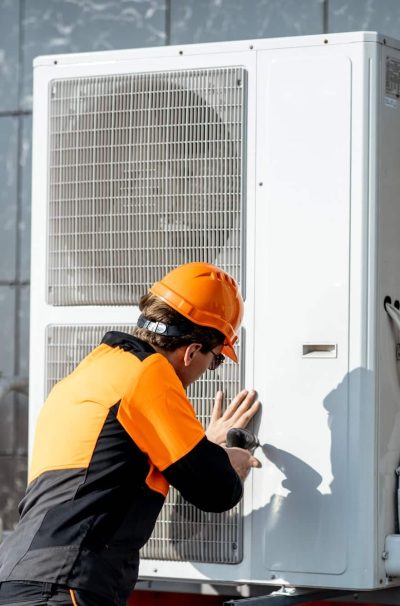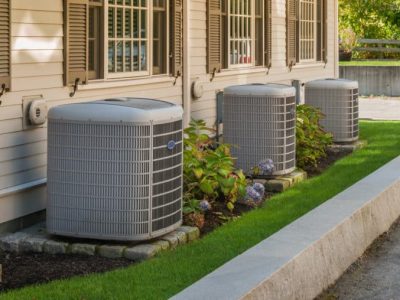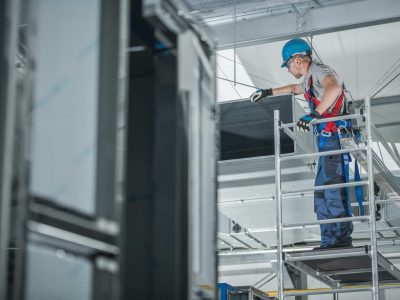As a homeowner, it’s essential to have a basic understanding of your home’s heating, ventilation, and air conditioning (HVAC) system. This guide is designed to help you get acquainted with the fundamentals of your HVAC system and empower you to make informed decisions regarding its maintenance and upkeep.
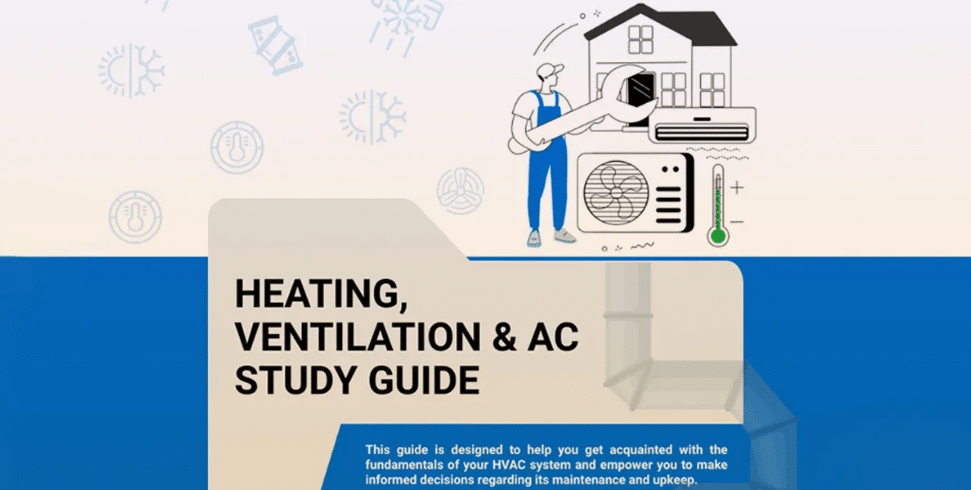
Understanding HVAC Components
Your HVAC system consists of several components that work together to regulate the temperature, humidity, and air quality in your home. These components include:
- Furnace: a device that heats air and distributes it throughout the building.
- Air conditioner: a device that cools air and removes humidity from it.
- Heat pump: a device that transfers heat from one place to another, depending on whether heating or cooling is needed.
- Ductwork: a network of pipes that distribute heated or cooled air throughout the building.
- Thermostat: a device that controls the temperature of the system.
- Air filters: devices that remove contaminants from the air, improving indoor air quality.
Types of HVAC Systems
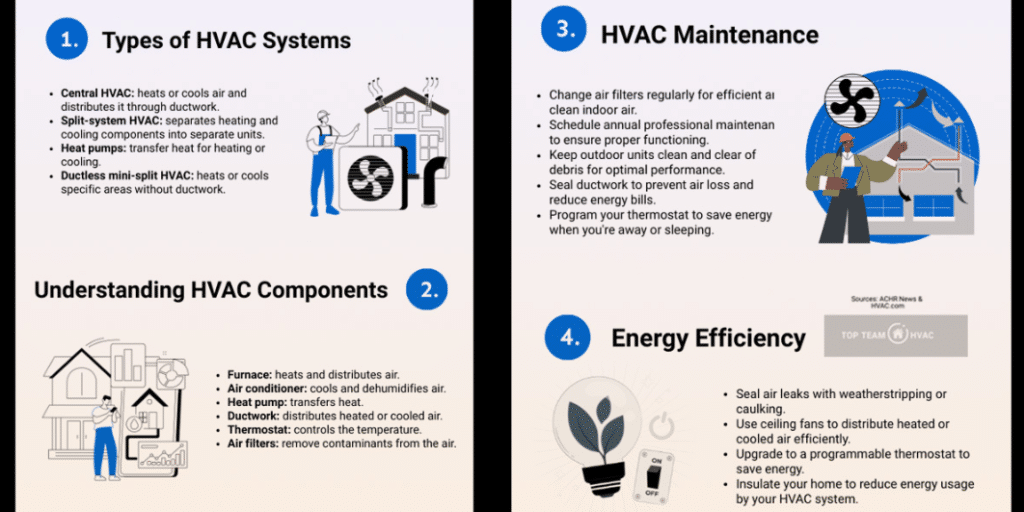

There are several types of HVAC systems commonly used in homes, including:
- Central HVAC systems: the most common type of HVAC system, where a single unit heats or cools air and distributes it throughout the building via ductwork.
- Split-system HVAC systems: a type of central HVAC system that separates the heating and cooling components into separate units.
- Heat pumps: a type of HVAC system that transfers heat from one place to another, depending on whether heating or cooling is needed.
- Ductless mini-split HVAC systems: a type of HVAC system that uses individual units to heat or cool specific rooms or areas instead of ductwork.
HVAC Maintenance
Maintaining your HVAC system is essential to ensure it runs efficiently and lasts for as long as possible. Here are some tips for maintaining your HVAC system:
- Change air filters regularly: A dirty filter can reduce the efficiency of your system and lower indoor air quality.
- Schedule annual maintenance: Hire a professional to inspect and service your system once a year to ensure it’s running properly.
- Keep outdoor units clean: Clear any debris around outdoor units and keep the coils clean.
- Seal ductwork: Leaks in your ductwork can cause air loss, which reduces efficiency and raises energy bills.
- Program your thermostat: Set your thermostat to adjust the temperature when you’re away or sleeping to save energy.
Energy Efficiency
Using your HVAC system efficiently can save you money on your energy bills. Here are some tips for improving energy efficiency:
- Seal air leaks: Inspect windows, doors, and other openings for air leaks, and seal them with weatherstripping or caulking.
- Use ceiling fans: Running ceiling fans can help distribute heated or cooled air more efficiently throughout your home.
- Upgrade to a programmable thermostat: Set your thermostat to adjust the temperature when you’re away or sleeping to save energy.
- Insulate your home: Insulating your home can help keep heated or cooled air inside, reducing the amount of energy your HVAC system needs to use.
About TOP TEAM HVAC
TOP TEAM HVAC is a full-service heating, ventilation, and air conditioning company committed to providing industry-leading solutions, flat-rate pricing, and exceptional customer service. With a team of highly trained technicians, TOP TEAM HVAC offers comprehensive services, including installation, maintenance, and repair of HVAC systems for both residential and commercial clients.
For more information, visit www.topteamhvac.com or call 818-851-7111.

